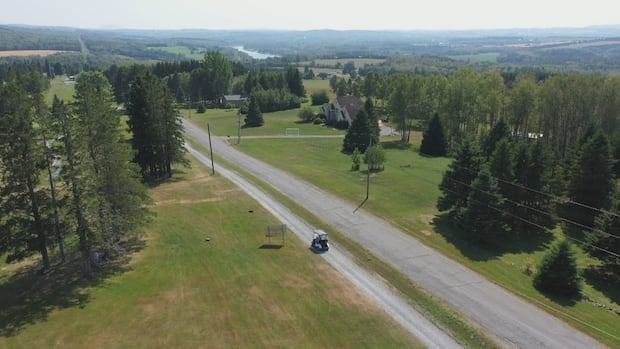A two-decade-long border security headache is finally over for a New Brunswick golf course tucked up against the U.S. border in the rolling hills of Victoria County.
Canadian golfers now have a safe, legal and all-Canadian route to the picturesque Aroostook Valley Country Club near Perth-Andover.
“The future of our club is back and very bright, and the club is vibrant,” said Stephen Leitch, the club manager and golf pro.
Leitch credits a Canadian family that itself had to put up with the U.S. crackdown on the once-relaxed border area.
“I just went, ‘You know what — this is never going to change,'” said Mary Pedersen, a Fredericton physician who grew up down the road — the American road – from the course.
“So I said, ‘I’ll donate the land.'”
Pedersen and her family transferred a strip of land running along the Canadian side of the border to create a trail that golfers use to shuttle into and out of the course on golf carts.
 Stephen Leitch, manager of the Aroostook Valley Country Club near Perth-Andover, gave credit to a landowner for helping to solve the border problem golfers faced. (Michael Heenan/CBC)
Stephen Leitch, manager of the Aroostook Valley Country Club near Perth-Andover, gave credit to a landowner for helping to solve the border problem golfers faced. (Michael Heenan/CBC)
The trail is named for her parents, Nickolaj and Marion Pedersen, who lived on the same road.
The travails of the golf course, and the Pedersens, made headlines in the years after the 9/11 terrorist attacks in 2001 prompted U.S. authorities to declare an “Orange Alert” security level along the Canada-U.S. border.
For decades, Canadian golfers, and people heading to the Pedersen home, turned left onto the Russell Road, which follows the north-south border line.
The road is entirely within U.S. territory in front of the Pedersen homestead and the club, but pre-9/11, Canadians didn’t need to check in with U.S. authorities to drive there.
Golfers would park in a club parking lot on the U.S. side of the border and walk to the clubhouse in Canada — another technically illegal crossing.
WATCH | ‘It’s just been phenomenal’: Trail donation ends border block: 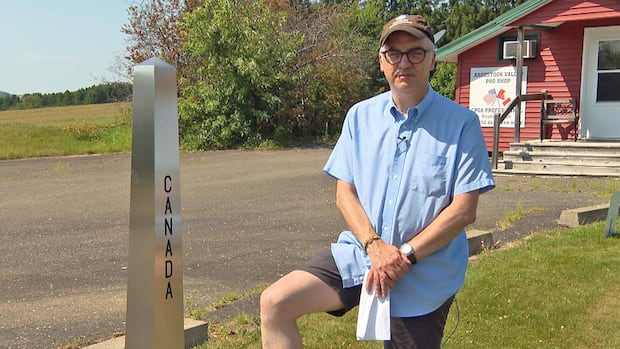
Canadian golfers blaze new trail to avoid U.S. border headaches
A strip of donated land resolves a decades-old security conundrum on the New Brunswick-Maine border.
After 2001, security officials became less willing to tolerate that.
The Pedersens endured U.S. border patrol enforcement against family members, mail carriers and newspaper carriers. Marion died in 2004 and Nick in 2009.
Golfers, meanwhile, began making a time-consuming detour through the official U.S. entry point at Fort Fairfield, Maine, to get to the club.
But the border shutdown during the COVID-19 pandemic put an end to that work-around, leaving Leitch wondering if the club could survive.
“There were jobs on the line, and actually the lifeline of the golf club was on the line,” he said.
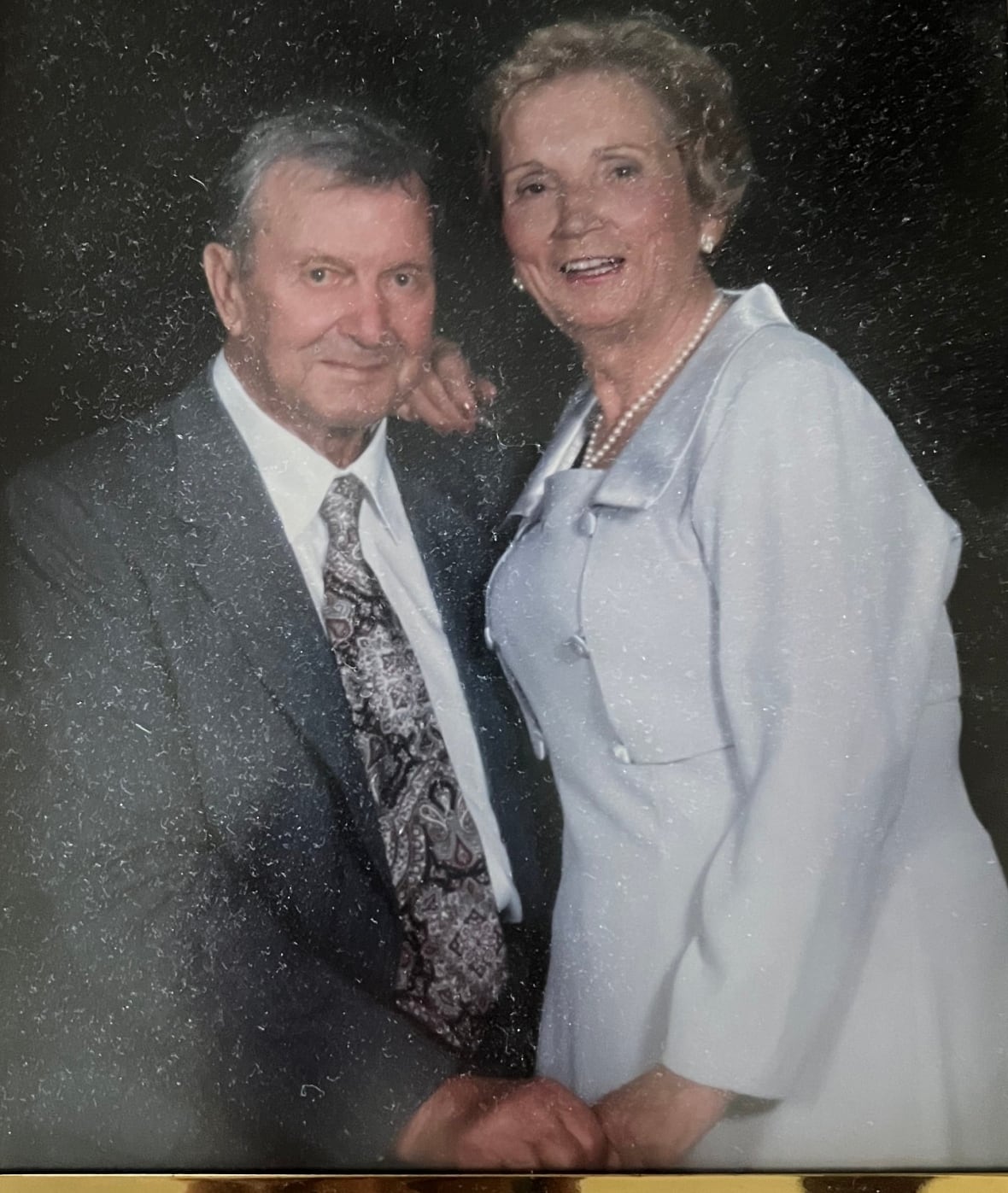 Nick and Marion Pedersen, a Canadian couple who lived on the same road as the golf club, endured strict enforcement by U.S. border officials in the wake of the Sept. 11 attacks on the U.S. in 2001. (Submitted by Mary Pedersen)
Nick and Marion Pedersen, a Canadian couple who lived on the same road as the golf club, endured strict enforcement by U.S. border officials in the wake of the Sept. 11 attacks on the U.S. in 2001. (Submitted by Mary Pedersen)
“What was once very advantageous to us in the way we were able to draw, in a very rural area, golfers from both sides of the border … has been met with some challenges, the fact that people aren’t able to access the golf club the way they once were.”
For a while, golfers would come down a back road through a potato field to the Pedersen property, with permission from the field’s owner, Grand Falls-based Dubé Farms.
From there they’d shuttle to the club in golf carts zipping down the shoulder of the Russell Road, hugging Canadian territory.
“It was not ideal,” said Lynn Dooling, the reigning women’s champion at the club.
Leitch calls it “a bad situation in the way that we were driving against traffic, on a blind hill, and probably doing harm to the edge of the road.”
Leitch asked Pedersen for help, and she decided to transfer the land for a trail running along the Russell Road a few feet within Canada.
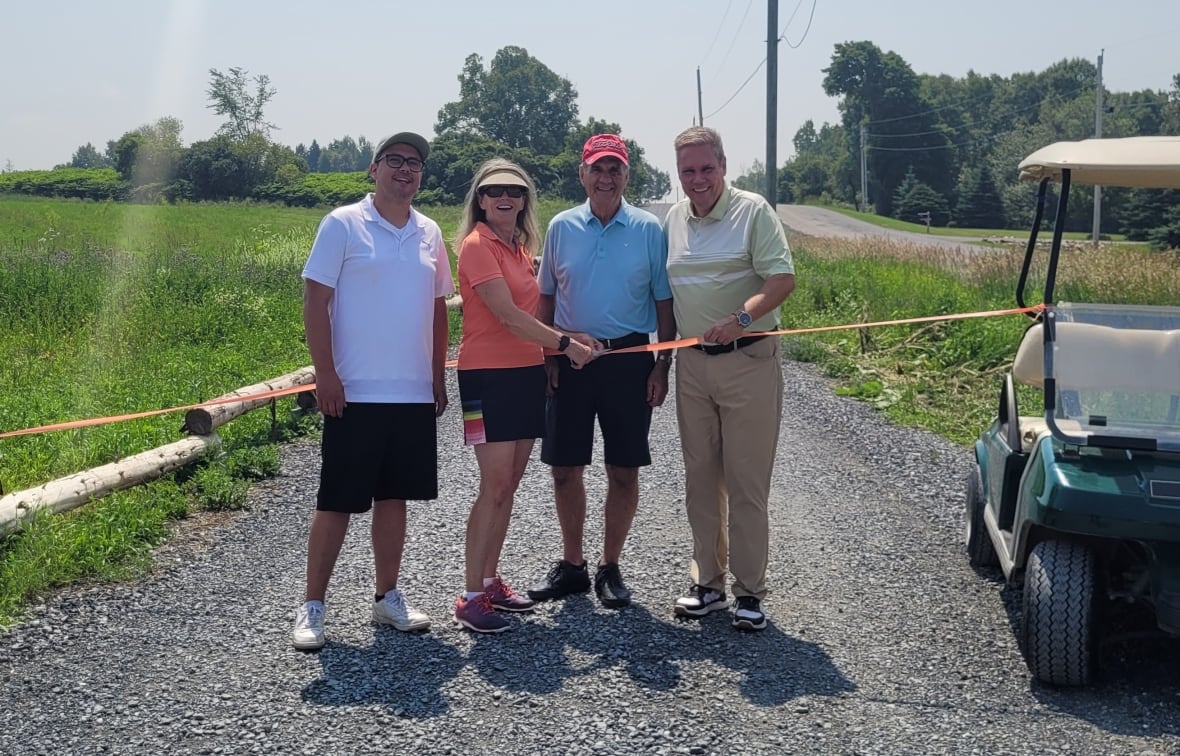 Taking part in the ribbon cutting for the new access trail were, from left to right, Mark and Mary Pedersen, grandson and daughter of Nick and Marion, and club president Pat St. Peter and club manager Stephen Leitch. (Submitted by Aroostook Valley Country Club)
Taking part in the ribbon cutting for the new access trail were, from left to right, Mark and Mary Pedersen, grandson and daughter of Nick and Marion, and club president Pat St. Peter and club manager Stephen Leitch. (Submitted by Aroostook Valley Country Club)
It created a happy ending for the tiny Canadian community of neighbours on this U.S. road.
“We grew up together. It was heartbreaking seeing all that happen,” Pedersen said of the 20-plus years of hassles.
“I just feel really, really happy giving this land to them. I know Mum and Dad would have been extremely happy to see it.”
The club held a ribbon-cutting ceremony for the trail with her and her son Mark in July.
“It made all the difference for them to donate this land and be able to build this road and drive straight out to the club house,” Dooling said.
“It’s just been phenomenal.”
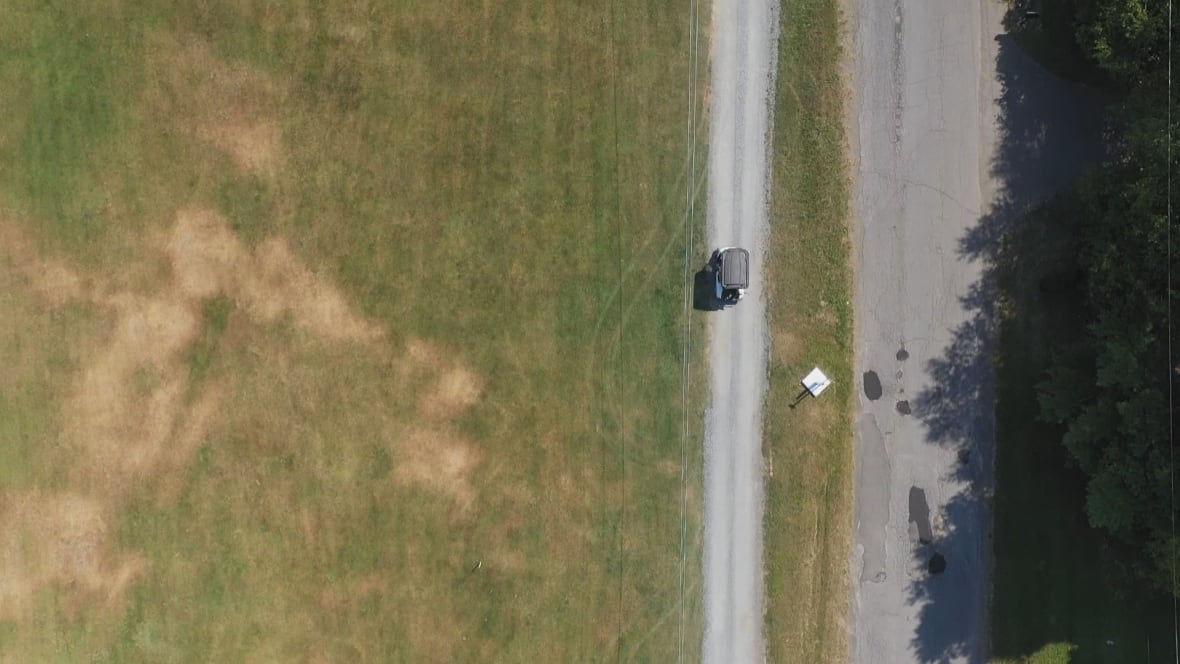 Instead of using the American road to the right of the border marker, Canadian golfers can now access the club by using the trail on the left, which is fully on Canadian soil. (Michael Heenan/CBC)
Instead of using the American road to the right of the border marker, Canadian golfers can now access the club by using the trail on the left, which is fully on Canadian soil. (Michael Heenan/CBC)
Americans, who used to make up about half of the club’s membership, are now the ones who must cross the border through a legal checkpoint and take the long way around to the club.
Leitch said this has affected membership numbers among Maine residents near the club, but business is good for American green-fee golfers — visitors to the state who come up to experience the novelty of the course and its scenic location for a day or two.
As he prepares for the club’s centennial celebrations in 2029, Leitch said the oddity of the setting, and the unusual way of getting there, could become part of the appeal.
“There’s not that many places where you have to shuttle in to the golf course over that distance on a golf cart to play such a beautiful course,” he said.
“But when you come up over the hill after driving through that potato field, and you wonder to yourself, ‘Where in the heck are we going,’ and … you see this oasis, you say ‘Oh, this is why,’ and that’s exactly what’s happening. People are finding a charm in that.”

